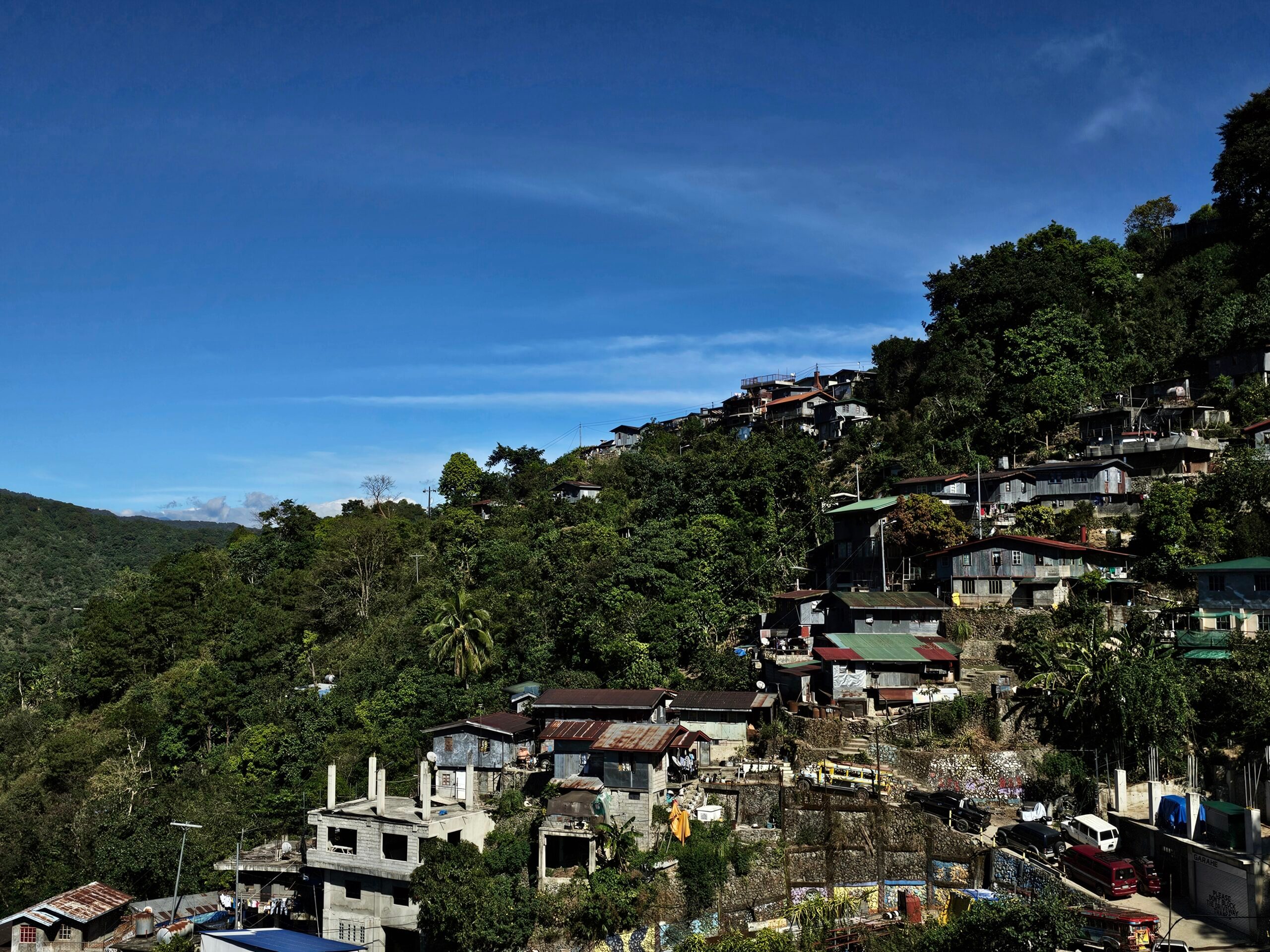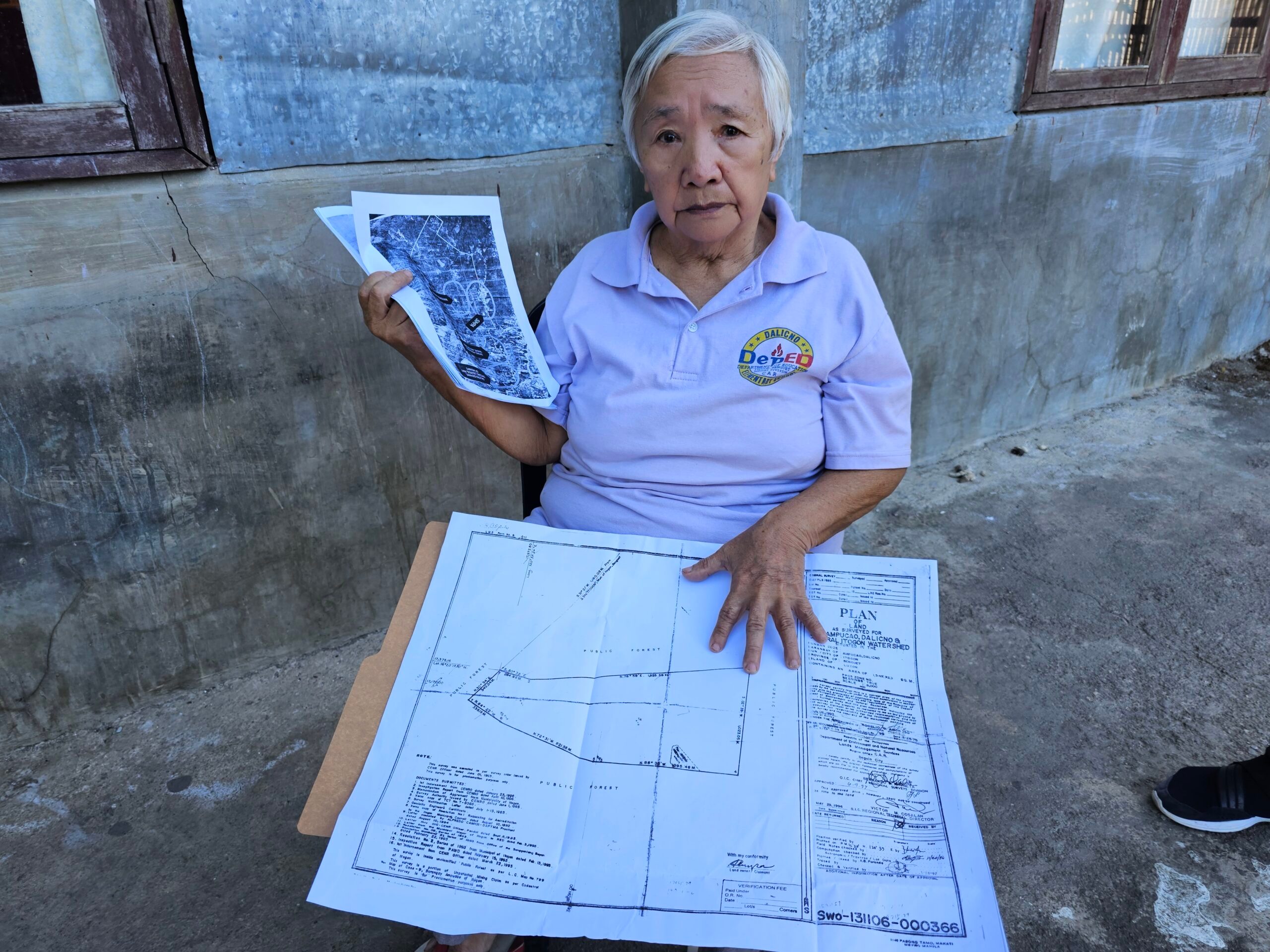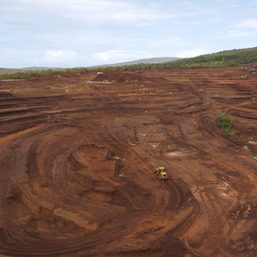SUMMARY
This is AI generated summarization, which may have errors. For context, always refer to the full article.

BENGUET, Philippines – Myline Sabiano, a member of the Ampucao barangay council, became emotional as she shared the concerns of Dalicno residents about Itogon-Suyoc Resources, Incorporated’s plan to expand its Sangilo mines operation during their audience with Itogon mayor Bernard Waclin on January 29.
“We want to ensure that Dalicno will remain livable for the coming years. This is why [we are here]; Dalicno is the most affected community,” she said.
Itogon, one of Benguet’s mining towns, is host to three large-scale mining operations: Benguet Corporation, Inc. established in 1903, ISRI started in 1930, and Philex Mining Corporation.

About 30 elders and community leaders went to the municipal hall to voice their concerns about the company’s expansion, which they believe would gravely affect their watershed, water source, residential areas, and livelihood. They also submitted a letter to local officials of Barangays Población, Virac, and Ampucao to rescind their support for the three-party Memorandum of Agreement (MOA).
Aside from possible environmental impacts, Dalicno residents, who depend on pocket mining, are afraid that they may lose control of their land and small-scale mining sites.
The representatives of the affected communities and ISRI signed the agreement, outlining the conditions and royalty shares of the indigenous peoples’ communities. The third party is the chairperson of the National Commission on Indigenous Peoples (NCIP), which has yet to sign the document.
ISRI is applying for a mineral processing and sharing agreement (MPSA) covering 581 hectares. Dalicno, a sitio with around 2400 registered voters, and its water source are inside the applied area.
MPSA is a contract allowing a company to mine specified areas for 25 years and renewable for another 25 years. The government receives shares from the production, while the contractor provides the operation’s financing, technology, management, and personnel.
ISRI has four patent claims covering 35 hectares in Sitio Sangilo in Poblacion. The application intends to renew its Lease Mining Contract, which expired in 2012, and expand its mining area to 617 hectares. If approved, this would provide the company with 22 million tons of ore resources.
More concerns
The residents are also wary of the company’s plan to fast-track its operation through a special mining permit (SMP).
In a letter dated January 6 addressed to the municipal council, ISRI asked for endorsement of its SMP application, which would allow it “to start rehabilitation of old tunnels, underground and surface development, ore block validation work and ore extraction in mining blocks outside of the patented claims…”
SMP authorizes MPSA applicants to operate provided they have area status clearance from the Mines and Geosciences Bureau (MGB), CP from the NCIP, endorsement from the concerned local governments, and no pending mining dispute. It is effective for one year and renewable for another year.
During his dialogue with Dalicno residents, Waclin acknowledged their concerns and assured them the LGU would be observed due process. He also noted that ISRI’s application has destroyed the community’s unity.
“I will talk with them and try to resolve the matter. I scheduled it for this or next week and will also talk with the barangay officials,” the mayor said in Ilocano.
“I will hear both sides, those against and in favor, and have a closed-door meeting with the barangay officials and the [municipal] council to get all the concerns to base my decision,” Waclin added.
Contention
The FPIC process for the project has been ongoing for years. The communities rejected it in January 2022 but reconsidered following the company’s appeal in February 2023. The negotiations culminated during the September 20, 2023, MOA signing.
However, in August and September 2023, Dalicno residents petitioned the NCIP Cordillera regional office, raising procedural lapses and registering their opposition to ISRI’s application and the contents of the MOA. Among the eight issues they brought up was the absence of genuine consultation in their community, which is the most affected by the application.
NCIP Regional Director Atanacio Addog dismissed the petitions in a resolution released on January 3, 2024, for “lack of merit.” The office also denied the request to expunge the indicated “No Mining Zones” from ISRI’s applied area, which are built-up areas.
Since the regional director has transmitted the FPIC Report for review by the NCIP Commission En Banc (CEB), the opposition also filed a petition before the central office. The CEB will issue the Certification Precondition (CP), certifying that the IP communities consented to the project and that the process adhered to the guidelines.
In their January 29 submission, they assailed Addog’s dismissal of their protest. They alleged that he failed to meet the 10-day prescribed period to resolve complaints as stated in Section 68 of the FPIC guidelines.
The complainants also claim that instead of addressing the FPIC violations raised, the official “gave justification as to why the FPIC team deviated from the provisions” of the rules.
The petitioners likewise questioned Addog’s decision to transmit the FPI report to the central office “without the favorable findings” from the Regional Review Team, as required by law. – Rappler.com
1 comment
How does this make you feel?
















Who were the communities that reconsidered the initial rejection of the expansion project, and what could be their reasons for their change of mind?